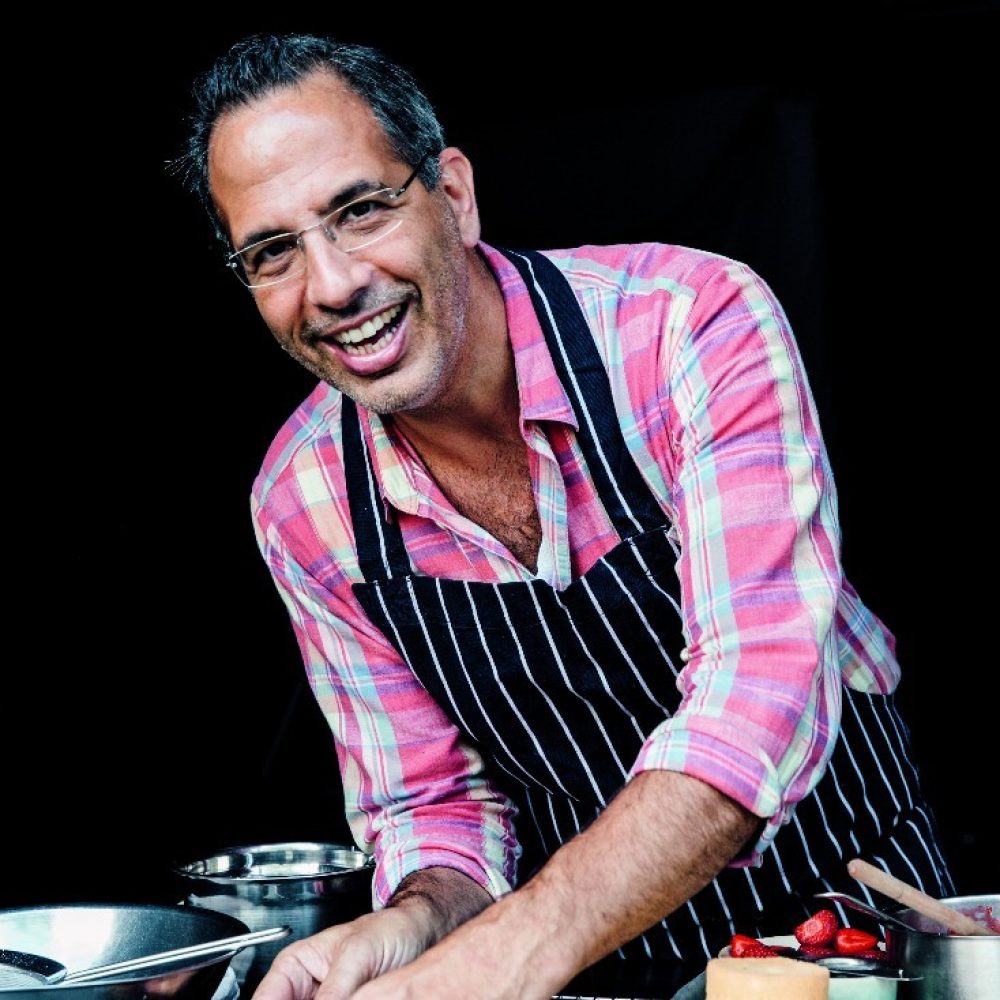Yotam Ottolenghi, the Israeli London-based chef who has brought Middle Eastern cooking into kitchens all over the world with books like “Plenty” and “Jerusalem,” may not be known for short ingredients lists. If you’re attempting one of his recipes, you’d better be prepared to buy a few different bunches of herbs, and probably restock your spice cabinet while you’re at it. But with his new book, “Simple,” the chef zeroes in on recipes that are more realistic for a weeknight, whether they require little prep, contain less than 10 ingredients or cook on a sheet tray.
On Milk Street Radio, Ottolenghi spoke about some of the key ideas in his book—roast vegetables whole, for one, and use spices liberally, especially as a finishing touch when infused in oil. Also, importantly, put yogurt on everything (unless it’s nonfat). The chef says his fridge always contains a tub of full-fat yogurt because he uses it multiple times a day.
He also talks about what it’s like to feed two young kids and how approaches the buzzword of the moment: authenticity. Get a taste from the excerpts below, and listen to the full interview here.
On feeding his kids
Both my sons are not the most adventurous eaters, but they're not extremely picky. I think children do have a different way of perceiving flavor. They have a different level of sensitivity, and I appreciate that. So they might become foodies. I'm not quite sure yet. But I have a great time at presenting food to them. Whether they eat it or not, you know, it depends on the day. It often only depends on the way the wind blows.
On authenticity
This is a very hot topic: cultural appropriation and what belongs to whom and what's the right version. I try not to brush it off too easily because for many people, this is extremely important because it symbolizes struggle or difficulty or cultural independence—all sorts of things. So for someone who lives in a relatively affluent culture, food is a luxury. In other cultures, it's a means of identifying yourself and placing yourself on the map of the world in a particular way, and this is true all over the world. So I’ve tried not to be too sensitive when it comes to the subject, and I tried to say to people, you know, you should really be a little bit more lighthearted about it. But really, you need to judge on a case-by-case basis.
On finishing touches
I do what they do a lot in Turkish cooking. And that is take a little bit of butter or oil and put some flaked chili—I like Urfa chili—but any kind of flaked chili does the work—and the moment that you throw the chilies in, the butter turns a really deep, beautiful red color and starts to flavor the oil or the butter, and that spooned over something—from vegetables to meat or stew to eggs—just really transforms the dish. It’s a simple trick and you don't need to be a genius to do it, and it has a real transformative effect.
On yogurt, beyond the breakfast bowl
Just recently I've been playing a little bit with cooking inyogurt, which is very common in India and the Middle East, in Persia … Cooking lamb meatballs in yogurt is so good, and also using it as a base for rice and pasta dishes as well, cooked and served warm. It's a wonderful thing. But also I have a recipe for a salad which is made out of lamb’s lettuce and cucumbers—really simple basic green salad ingredients—but the dressing consists of yogurt and ginger and garlic and lemon juice, hardly anything else. It’s got a really wonderful consistency, but beautiful sharp flavors. So yeah, yogurt can go almost on everything and anything. I always have to have a tub of full-fat yogurt in my fridge because I use it a few times every day.
On garlic in hummus
It needs a bit of garlic, a bit of lemon juice, yeah. I'm definitely in the garlic camp. I used to have very clear opinions about hummus and over the years I've changed my mind a bit. It goes back to the question that we started with about authenticity, and I have less and less time for things that are described themselves as authentic because I think authenticity hardly really exists. It's a construct that we love to believe what we eat has. But throughout human history, people used to invent new dishes, so when you say something is authentic, it's probably authentic to one person at one point in history.
With a new book out, the chef catches up with Milk Street
Yotam Ottolenghi on Feeding His Kids, Authenticity and Hummus
December 28, 2018



